Jordan Peele tells us about Us: “I’ve always had a doppelganger fear”
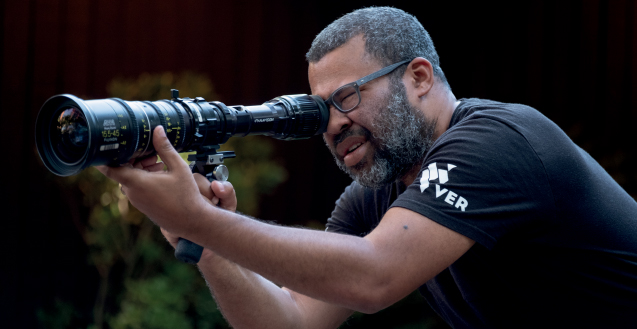
In 2017, Jordan Peele, a comedic actor best known for his tenures on Mad TV and his own skit show, Key & Peele, released his first film as a writer/director: Get Out.
And it pretty much changed horror forever.
Flicks grilled Peele about his highly-anticipated sophomore film, in cinemas March 28.
Fusing excruciatingly well-crafted tension with racial themes all too rarely addressed in mainstream genre cinema, Get Out grasped the cultural zeitgeist in a manner that was practically unprecedented, eventually garnering Peele an Oscar for Best Original Screenplay, with the film receiving nominations for Best Picture and Best Director.
So, no pressure on the follow-up then.
Peele’s new horror film Us has Black Panther co-stars Lupita N’Yongo and Winston Duke playing the heads of a young family of four who find themselves terrorised by four evil doppelgangers who look exactly like them. Here’s what Peele has to say about it.
FLICKS: Get Out felt very topical and very political, were you attempting to do something similar with Us?
JORDAN PEELE: I came to write Get Out thinking about a form of expression I felt was being suppressed. That discussion was a racial one, [the idea] that we’re in this post-racial world, and I couldn’t have imagined the timing of that prospect would have just coincided with the moment it did.
So I figured with this one, let’s try to access a truth that I feel that is lacking in the way we discuss society. And the piece that I started with was this idea that we are a culture of finger-pointers, human beings. Whether it’s fear of the outsider or fear of the other, or fear of outside of the country, outside of our home unit, the neighbour across the street, we are much quicker to point our finger outward than we are to point it inward. So I thought, hey, maybe by the time this movie comes out, people are gonna be ready to look inward.
And I think one of the big realisations about this entry into the pantheon of doppleganger horror was, which by the way is all about self-reflection and looking at our dark side, it’s one thing to look at our individual demons, it’s another thing to look at our collective demons. And to say that us, we, human beings, are capable of a different level of evil when we get together than just about anything on the planet.
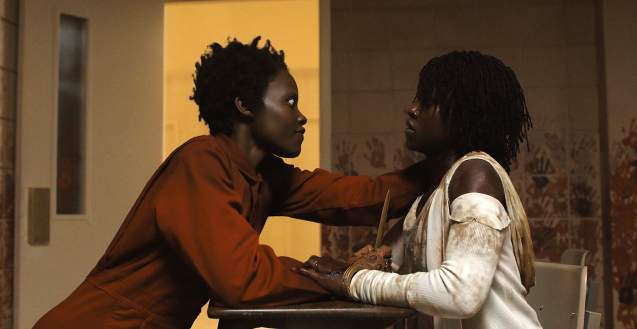
It’s also about America, right?
Absolutely. The American faction is one I am a member of, and I felt like I could build a tapestry around the American version of us, the US. That being said, I think the reason this movie is a bit of a Rorschach test, is because ‘us’ means something different to everybody. It can mean you and your partner, your spouse, it can mean your block, it can mean your country. I believe we, us, as human beings, the tribalism in our nature, that is what causes us to fear the other. But yeah, first and foremost, I find the duality of the imagery of American hope and generosity as being particularly creepy right now.
How do you define your relationship to the horror genre?
I think horror is probably my favourite genre because it affects me so much, and the reason it is important is this thing I’m talking about where it accesses our most buried emotion, which is fear. And for me, when we bury emotion, anything that is buried and suppressed like that, when it is released, it is a big release, and it is a cathartic release. So I like horror because I think it does the biggest trick of any of the genres, it takes your most unpleasant state of being and attempts to make something pleasurable out of it.
I think comedy does that in a different way, I’m realising that horror is sort of the dark doppelganger of comedy in me. The same DNA, they’re both grounded, they’re both about noticing how reality interacts with absurdity, they’re both about rhythm, and they both to me are meant to evoke a very visceral, audible response, a mini-catharsis of some sort.
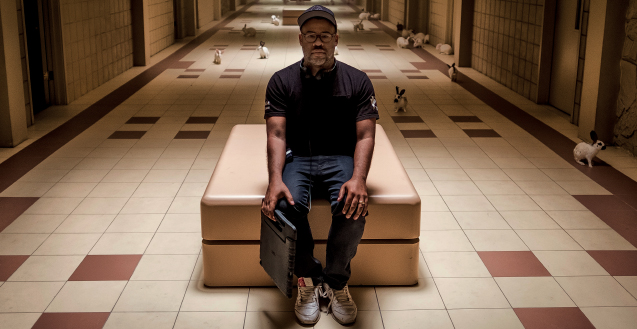
Did winning an Oscar for Get Out add to the pressure of delivering a successful follow-up?
The Oscar was a crazy moment and it actually freed me up, I don’t have to worry about that, that dream has come true. There’s pressure, everyone always says: do you feel the pressure? There’s pressure in this second film but in order to make this I did myself the favour of going back to what drove me in my first project, which was, make the movie I wish someone would make for me. So that’s what I did here.
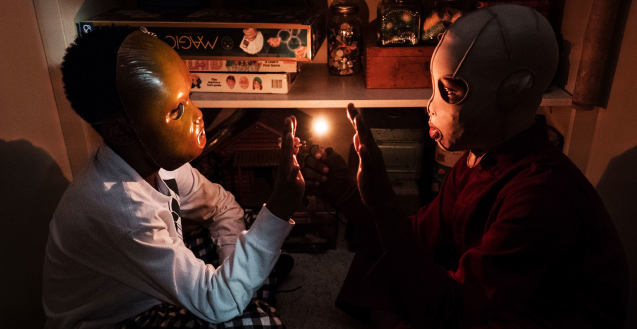
You’ve said this film came from some of your own demons – what are those?
On a very visceral level, I’ve always had a doppelganger [fear]. That has freaked me out and I think it’s universal, that is a mythology that has been told many different times in many different cultures, that has fascinated me. I think when I started making this film, I said, I can’t make this movie unless I’m willing to look at my demons, and my piece of the evils in the world, and I think one of those pieces is having lived a life of privilege, without completely and fully acknowledging those who have to suffer in order for me to experience that privilege.
That to me is one of the great atrocities of any person or society who is able to put a mask over the dark side. We have an ability to block out what we don’t want to see, what we don’t want to acknowledge. The idea that we are connected to someone who was not born in the same place and time and received the headstart that I received. And I failed to acknowledge that for a long time. I still need to push myself.
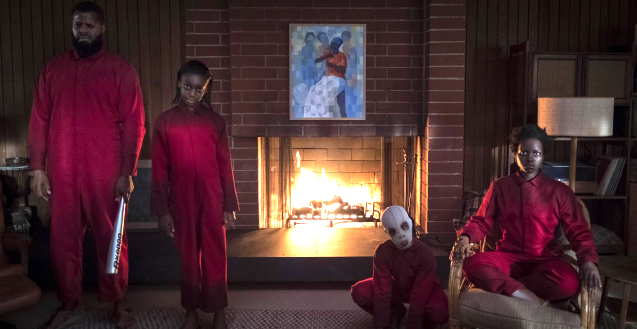
Race was a big part of Get Out, but this feels more like it’s about an American family who just happens to be black. Is that a fair assessment?
You’re absolutely right. It’s very important for me to establish and be very vocal [that you shouldn’t] come into this looking for a movie about race, because it’ll take you astray. That being said, just by virtue of putting a black family in a film like this, in roles like this, in the centre of a horror film, you have dynamics that arise that don’t arise in the white counterpart film. And that to me is one of the great benefits of pushing the boundaries of representation. Just by virtue of having a black family buy a boat in a movie, all of a sudden you have a very new, very fresh and different film than you’ve ever seen, and we’re left to think about that, and what that means.
So that choice to make this a black family, which isn’t really a choice to me, it’s something I will always do, and I get to do. I’m always taught amazing lessons of how representation can matter in little ways I wasn’t even planning.
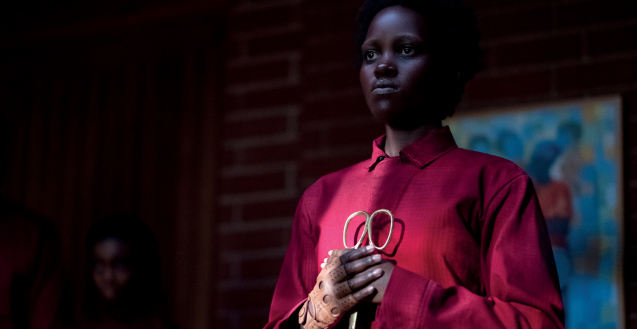
How tricky is it integrating social awareness into a genre film?
This movie has to be a popcorn film that you can come in and enjoy if you don’t want to think, and it also has to operate on the level of an intellectually engaging film that you can peel back the layers of, like an onion. So what I find is when you give people both of those options they tend to engage on an elevated level. In that way, I believe my audience is very intelligent, but if they want to shut off their brain and not think, they’re welcome to.



















